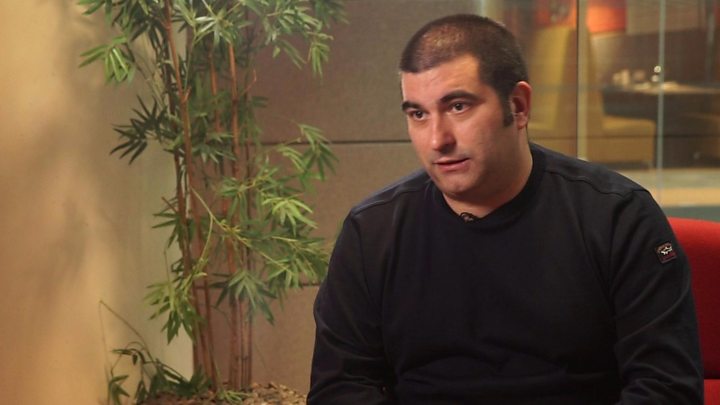What happens to Debenhams now?
 Image copyright PA
Image copyright PA Debenhams’ much anticipated slide into administration has finally come to pass.
The chain is now in the hands of its lenders.
Not for long though – those lenders, Barclays and Bank of Ireland, as well as hedge funds Silver Point and GoldenTree, will now try to sell the business as soon as possible.
So what do we know about these lenders and who might be lining up to buy Debenhams?
Who are the current owners?
Barclays and Bank of Ireland are familiar names in the UK and need little introduction.
But Silver Point Capital and GoldenTree Asset Management are less well known.
GoldenTree was set up in 2000 and has offices in New York, London, Singapore and Sydney.
It specialises in high-risk, high-reward investments. Last November, it bought Johnston Press, after the owner of the i newspaper and the Scotsman went into administration. GoldenTree was the firm’s biggest lender.
Silver Point Capital is of a similar ilk. It is a newer business than GoldenTree, and was formed by two former Goldman Sachs partners.
It also focuses on the type of special situations investments favoured by its fellow Debenhams-backer.
So who might buy Debenhams?
Mike Ashley has made clear his interest in buying the store chain all along, despite being repeatedly rebuffed by Debenhams’ board.
He isn’t giving up.
Sports Direct has formally registered its interest with the chain’s interim owners, deputy chief financial officer Chris Wootton told the BBC.
However, Mr Wootton doesn’t expect them to succeed at this stage either.
“The way this has all been set up suggests to us [the owners] already have a plan in place to sell it to a third party, not us.”
Mr Wootton suggests “various retailers” would be interested in buying Debenhams, including another big name from the UK High Street, Topshop-owner, Sir Philip Green.
A BBC source says Sir Philip is not interested in buying the chain, however.
Maureen Hinton, retail research director at GlobalData, suggests Philip Day, owner and chief executive of Edinburgh Woollen Mills as a potential bidder.
Mr Day owns a number of other well-known brands, including Peacocks and Jaeger, and earlier this month he put in a bid for struggling fashion chain Bonmarché.
“Philip Day is developing a department store concept, so he might want to take some of their stores,” says Ms Hinton. However she says the whole chain might prove too big for Mr Day.
That’s the problem, agrees Diane Wehrle, marketing and insights director at retail intelligence experts Springboard. It’s a tall order expecting anyone to take on a chain the size of Debenhams at a time when bricks and mortar retail is struggling.
“Potentially Amazon? They’re putting their toe in the water,” says Ms Wehrle.
But Amazon takes a “pragmatic” approach, she says, and might not have the appetite for a large network of stores.
Instead some stores, in particular the smaller ones, could be sold off piecemeal to retailers who want to expand, such as Primark, Aldi or Lidl, she suggests.
What would a new owner do with Debenhams?
Mr Wootton says that if Sports Direct took over the chain, they would keep more than 90% of stores open.
“We’d obviously look to invest in the stores, because they look very tired,” he said. He suggests thousands of jobs could be saved.

Media playback is unsupported on your device
The chain has 166 stores, which initially at least will all continue to trade. But it also has £621m of debt.
The current plan is to renegotiate the rents on some its stores, while around 50 have already been earmarked for closure starting next year.
Ms Wehrle says any purchaser would be looking at slimming down the “huge number of stores” in the chain.
GlobalData’s Maureen Hinton agrees that even Mike Ashley would thin store numbers, and argues Debenhams would need significant investment if it wants to compete with John Lewis.
“Merging it with House of Fraser could be a benefit [thanks to] the economies of scale… [offering] greater bargaining power with suppliers and landlords,” she suggests.



